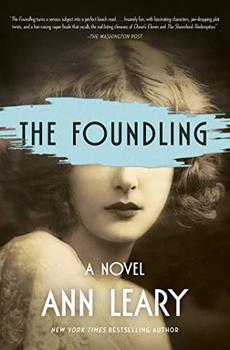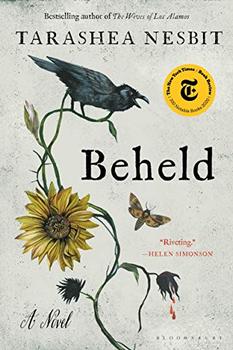Summary | Excerpt | Reading Guide | Reviews | Beyond the book | Read-Alikes | Genres & Themes | Author Bio

There is nothing particularly new or revolutionary in considering the ways men have controlled women's lives and bodies throughout history (and to some extent still do today). Fortunately, Clare Beams' luminous, intense debut The Illness Lesson offers a more layered and complex version of this story in which the men who may appear, and even believe themselves to be, progressive champions of women's rights fail utterly to live up to their own ideals.
The novel's protagonist, Caroline Hood, is a young woman living with her father, the renowned author and thinker Samuel Hood, in 1871. Caroline's mother died when she was five, shortly after the failure of Samuel's first grandiose venture, a collective farm called the Birch Hill Consociation run by his devoted acolytes. Now, Samuel has attracted a new young admirer, and the two men conceive of a plan to open a school for teenage girls that will offer instruction beyond what is typically taught to female students—subjects like math, philosophy and science. Caroline is tasked with teaching literature. But when the girls arrive, things begin to go south quickly. It turns out that one of the students has a personal connection to the Hoods from the Birch Hill era, which Samuel would prefer to forget. Then a mysterious illness sets in, affecting each of the girls slightly differently, and Samuel calls in a longtime associate, Dr. Hawkins, to investigate. Hawkins diagnoses the girls with hysteria and Caroline balks at the intrusive treatment he recommends. When she tries to express her reservations to her father, he is dismissive, asserting that they should defer to Hawkins' medical expertise.
The situation is morally complicated (to the men at least) by their faith not only in Hawkins but the significance of their project, and by extension, their own integrity. Samuel and his protege David refrain from contacting the girls' parents or seeking other medical opinions because they believe doing so would be an admission of defeat for the school—proof that girls are insufficiently intelligent or robust for a proper education. Then there's Birch Hill to consider. Would Samuel's legacy withstand another failure, or would he be judged harshly if the school closed amid controversy after its first term? Caroline wants to protect the girls from potential harm, but she is deeply entangled in her father's ambitious plans. The novel is taut with these constricting knots of loyalty and responsibility and the agonized indecision they provoke in Caroline.
The irony is that Samuel raised his daughter in the manner in which he teaches his students—educating her, insisting that her gender should hold her back from nothing, inspiring her toward moral courage. Yet he has also held her as something of a captive to his dreams and needs. Caroline has her own ambitions, her own desires; but with her mother gone, she can't imagine leaving her father alone. And despite his posturing about gender equality, Samuel clearly expects his daughter to support him and agree with his every plan. He brought her up to be an independent, free-thinking woman, but when she behaves as such, he is flummoxed. "The soul does not have a gender," Samuel tells her when introducing the idea of the school. But Caroline wonders about the implications of this statement: "She had no way, really, of evaluating its general truth. She knew only that her life had a gender."
While Caroline is the novel's central figure, Beams breathes life into the students as well, capturing the distinct low-grade madness adolescence can sometimes inspire, particularly in teenage girls. The most intense among them, Eliza, holds the other girls in her thrall; they are all desperate to be her best friend and imitate her behavior. In fact, the Hoods' students truly do seem to be suffering from mass hysteria, but the novel is less concerned with why or what this means than it is with Caroline's inner conflict. This is perhaps the narrative's only flaw. Given no insight into what is really going on, one might very well think that the girls are simply mentally and emotionally ill-equipped for what the school is asking of them, just as Samuel fears.
Nevertheless, the novel is a clever critique of the paternalism and subtle condescension often present just below the surface of supposedly forward-thinking men. The author sustains a deeply discomfiting atmosphere of dread throughout, making The Illness Lesson a quiet feminist thriller about the perils of respecting male authority over one's own moral instincts.
![]() This review was originally published in The BookBrowse Review in February 2020, and has been updated for the
March 2021 edition.
Click here to go to this issue.
This review was originally published in The BookBrowse Review in February 2020, and has been updated for the
March 2021 edition.
Click here to go to this issue.

If you liked The Illness Lesson, try these:

by Ann Leary
Published 2023
From the New York Times bestselling author of The Good House, the story of two friends, raised in the same orphanage, whose loyalty is put to the ultimate test when they meet years later at a controversial institution - one as an employee; the other, an inmate.

by TaraShea Nesbit
Published 2021
From the bestselling author of The Wives of Los Alamos comes the riveting story of a stranger's arrival in the fledgling colony of Plymouth, Massachusetts - and a crime that shakes the divided community to its core.
Your guide toexceptional books
BookBrowse seeks out and recommends the best in contemporary fiction and nonfiction—books that not only engage and entertain but also deepen our understanding of ourselves and the world around us.